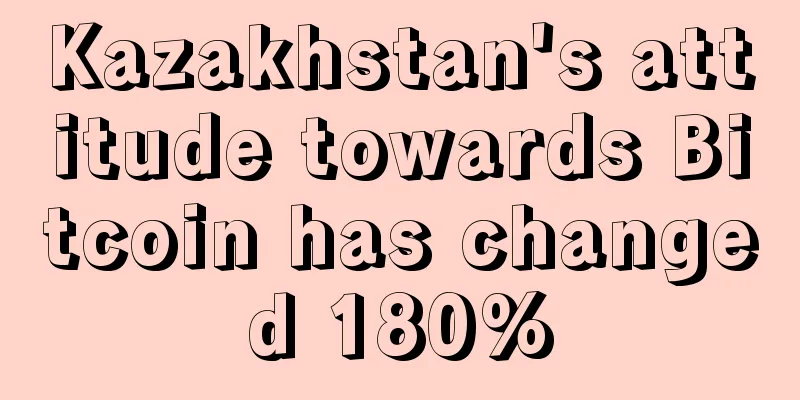Kazakhstan's attitude towards Bitcoin has changed 180%

|
Kazakhstan’s fiat currency, the tenge, has been falling against the dollar for decades, hitting a record low recently. In stark contrast, trading activity in the digital currency Bitcoin has been growing in the country. Kazakhstan's currency problemBefore independence, the Kazakhstan Soviet Socialist Republic was one of the republics of the Soviet Union. On December 16, 1991, Nursultan Nazarbayev declared Kazakhstan independent, making it the last country to gain independence after the disintegration of the Soviet Union. In 2014, Kazakhstan's GDP was approximately $420 billion, making it the largest and most powerful economy in Central Asia. Kazakhstan’s national currency, the tenge (KZT), has performed better than its neighbors thanks to its strong economic prospects, but the tenge has been falling against the dollar year after year for a variety of reasons, including corruption and oil prices. Last winter, the tenge hit a record low against the dollar. The tenge has lost nearly 70% of its value since the 2008 financial crisis, hitting the savings of the country's citizens and leaving many seeking safer ways to store value. Kazakhstan’s attitude towards cryptocurrencies shiftsFor centuries, Kazakhstan has followed the footsteps of Russia, both culturally and politically. Previously, Russia attempted to ban cryptocurrencies, and Kazakhstan has also made similar announcements. As early as 2014, the head of the Central Bank of Kazakhstan, Kairat Kelimbetov, pointed out that the Central Bank of Kazakhstan may "label Bitcoin as a financial pyramid scam." Daniyar Akishev Thankfully, after Russia relaxed its policies, it seems that Kazakhstan, and Kelimbetov’s successor, Daniyar Akishev, have shifted their attitude towards the Bitcoin project.
Currently, there is no Kazakh Bitcoin exchange on the market, but the tenge (KZT) is traded on LocalBitcoins and some small exchanges. More importantly, Bitcoin Kazakhstan (a Bitcoin advocacy center) has provided Bitcoin consulting, training, business networking, mining and other services in the country's largest city, Almaty, with the goal of promoting the use of Bitcoin in the Republic of Kazakhstan. The advocacy center was founded in 2014 by Boris Komarov, who told EurasiaNet:
The infrastructure of Bitcoin in Kazakhstan is also becoming more and more complete. In December last year, the Almaty region welcomed the first Bitcoin ATM. The owner, Kanat Amrenov, admitted that although there is not enough Bitcoin traffic at present, the machine has not yet been profitable, but he believes that placing the machine in the country’s prime commercial location should help promote Bitcoin. He hopes to make a profit this fall and then buy more machines. Do you think Bitcoin acceptance will keep growing in Kazakhstan? Leave your comments below. |
<<: Coder Going By The Name Voldemort Is Working To Solve Bitcoin's Biggest Problem
Recommend
Your personality through eyebrow shape
Sword-shaped eyebrows refer to eyebrows that are ...
What kind of people are prone to quarrels with others?
In fact, many times, if any friction occurs when ...
Is it good for a woman to have a teardrop mole on her face?
In physiognomy, although a mole is not enough to ...
People with these faces have good fortune in developing wealth in the local area.
Although some people have particularly good luck ...
What does a mole on the waist mean? Is it good to have a mole on the waist?
The basic theory of mole physiognomy is: it is be...
Where is the Yintang?
There are many important places on our face, and ...
The marriage line is broken with one up and one down, which means there are many bad relationships.
Is it okay for the marriage line to be broken up ...
Your nose can tell you how rich you are.
Your nose can tell you how rich you are. In today...
Practical physiognomy knowledge: what kind of face is a lucky face for a man
Physiognomy can reveal a person's fortune, an...
Litecoin's strong comeback? ——Litecoin officially releases 2016 development roadmap
Recently, the Litecoin kernel development team an...
Mole analysis: Auspicious moles tell you the joy of fate
Mole analysis: Auspicious moles tell you the joy ...
What kind of woman is best?
Every man wants to marry a good woman; so, in ter...
What are the facial features of a lucky person?
Everyone's face has its own characteristics. ...
Flexible Transactions
I’ve been asked a question more and more frequent...
Coin Zone Trends: Bitcoin Price Trends Based on Big Data This Week (2017-05-10)
The market may not have risen wildly, and the pat...









